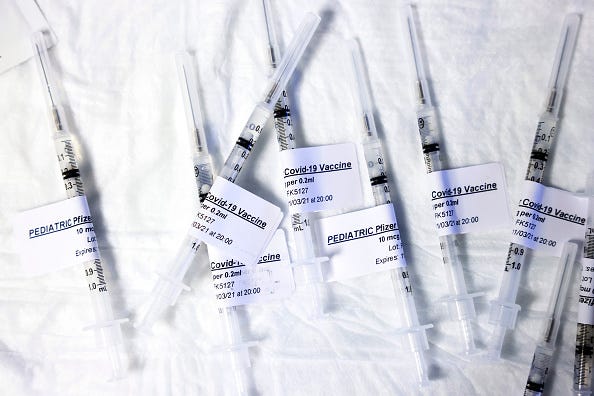
SAN FRANCISCO (KCBS) — A new study shows that the lower dosage version of the Pfizer-BioNTech COVID-19 vaccine used in young children is less effective at protecting against infection than the higher-dose shot for older children and adults.
According to the study, the shot, in all cases, protected against any severe infection, but from the start date of the study, Dec. 13, to the end date, Jan. 30, protection from infection waned drastically.
The study, conducted by researchers from the New York State Department of Health, collected data from more than 1.2 million fully vaccinated children from 5 to 17.
For kids from 5 to 11 — the age range to receive the lowest dosage of the shot — the ability of the vaccine to prevent them from being infected fell from 68% at the start of the study to 12% at the end. That age range received a dosage one-third the size of the standard shot.
The study found that the effectiveness of the shot for children from 12 to 17 showed a smaller decline over the time period, going from 66% to 51%.
"These results highlight the potential need to study alternative vaccine dosing for children and the continued importance [of] layered protections, including mask wearing, to prevent infection and transmission," the study stated, according to NPR.
Pfizer's child-sized dosage of the shot for young children was stalled for emergency approval after being submitted. The FDA reported it wanted to look into new evidence that had emerged.
The study now comes as COVID-19 protocols are being loosened, with new infection numbers getting better nationwide.

